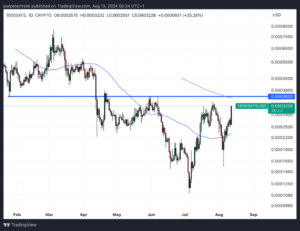What are companies for? Five years ago the Business Roundtable, a coven of American chief executives, overturned orthodoxy on this question. For decades company bosses had agreed that their mission was to make their shareholders richer. Doing good meant doing well. More precisely, it meant raising their firm’s share price. Such a narrow measure of success, it was argued, would keep managers focused and honest.

The Business Roundtable’s memo of August 2019, by contrast, insisted that companies should act in the interests of all their “stakeholders”—not just shareholders but customers, employees and society as a whole. The timing was no coincidence. According to Gallup, a polling firm, the share of Americans that had very little or no confidence in big business had rocketed from a quarter in 2000 to almost two-fifths in the aftermath of the global financial crisis (see chart). Corporate America needed a rebrand. The divisive presidency of Donald Trump presented the perfect opportunity, as America’s elites looked to companies to take action on issues ranging from climate change to racial inequality. Environmental, social and governance issues—together ESG, a discordant triptych used by investors to try and quantify corporate goodness—soon reached the top of boardroom agendas.
That project is beginning to crumble. Chatter about climate change on the earnings calls of companies in the S&P 500 index was nearly a third lower last year compared with its peak in 2021. “The ESG pendulum has swung back,” said the boss of Glencore, a Swiss mining giant, earlier this month after scrapping a plan to shed its coal business. Companies now tend to evaluate green investments solely on their commercial, rather than moral, merits, notes the boss of a sustainability consultancy. Talk of diversity on earnings calls has also plummeted by nearly half since 2021. So far this year investors have withdrawn around 4% of the money they had allocated to ESG funds in America.
Yet it would be a mistake to assume a return to the days when bosses were free to focus simply on maximising short-term shareholder wealth. According to Gallup, confidence in big business has only worsened since the Damascene conversion of the Business Roundtable. Far more Americans have confidence in the country’s police, military, churches and unions. Boeing, a maker of aeroplanes, recently agreed in principle to plead guilty to fraud in connection to two deadly crashes in 2018 and 2019. Earlier this month an American judge ruled that Google, a tech giant, had acted as a monopolist by paying to be the default search engine on various phones and web browsers. (It is appealing against the decision.)
This makes big business an easy target for both Democrats and Republicans. Clashing with companies “has always been a feature of the far left, but we’re seeing more of it across the political spectrum, including on the right,” says Joshua Bolten, chief executive of the Business Roundtable. J.D. Vance, Mr Trump’s running-mate, railed against Wall Street at the Republican Party’s convention in July. He is seen by bosses as an “anti-capitalist”, says Jeffrey Sonnenfeld of Yale University.
What America’s two political tribes want from business is not always the same. When it comes to the environment and diversity, they are at loggerheads. That helps explain why chief executives’ enthusiasm for ESG, which Republicans deride as woke capitalism, has proved so brittle. But both Democrats and Republicans are eager for corporate America to churn out middle-class jobs while remaining one step ahead of China in the race for technological supremacy. Calls for corporate purpose may have quietened. Those for corporate patriotism are getting louder.
Although there has “always been the proverbial military-industrial complex”, says Curtis Milhaupt of Stanford Law School, “the number of firms wrapped up in national-security policy is much larger today.” Trade for some industries has become fraught. Companies dealing in areas of cutting-edge technology must now keep one eye fixed on the expanding list of Chinese firms they cannot do business with. Carmakers are bracing for rules prohibiting the use of Chinese software in autonomous vehicles. Some fret that Mr Trump, if he is re-elected in November, could expand export restrictions—though he may also lean harder on allies to match America’s measures on China, lessening their impact on American businesses, notes Jeremy Zucker of Dechert, a law firm.
Cross-border investments are getting trickier, too. In June America’s Treasury department announced details of its proposed restrictions on investments in Chinese semiconductor, quantum-computing and artificial-intelligence companies by American firms. Scrutiny of inbound transactions, meanwhile, continues to increase. Last year the Committee on Foreign Investment in the United States, America’s inbound-investment watchdog, poked its nose into transactions in industries accounting for 60% of the value of America’s stockmarket. The political furore over the proposed takeover of US Steel, a faded industrial icon, by Nippon Steel, a Japanese rival, shows just how sweeping the definition of “national security” has become.
Companies are eager to shape the government’s creeping commercial agenda in their favour. Some are trying to persuade politicians to go easy on trade and investment rules. “Companies are pushing a lot harder than they were even a year ago,” says Deborah Curtis of Arnold & Porter, a law firm, of recent discussions between bosses and policymakers on technology restrictions. Others are cosying up to politicians in an effort to gain favour for their industries. Elon Musk, the boss of Tesla, an electric-vehicle (EV) company, has lately become a cheerleader for Donald Trump. On August 3rd the presidential candidate declared he now supported EVs because “Elon endorsed me very strongly”.
Chief executives are aware that wrapping themselves in the flag can pay off, at least in the short term. Pat Gelsinger, the boss of Intel, an American chipmaking giant, said he could “feel the national pride welling up” when work started at a site in Ohio in 2022. Earlier this year his company was awarded the biggest handout so far under the CHIPS Act, comprising $8.5bn in grants and up to $11bn in loans. Falling in with the government’s security agenda can benefit firms in subtler ways, too. A $1.5bn investment by Microsoft, an American tech giant, into G42, an AI startup, in April was reported to have been negotiated in close co-operation with the government. It came with the stipulation that the Emirati firm sever its ties with Huawei, a Chinese tech company under American sanctions.
In time, however, the costs of corporate patriotism will become clearer. A more interventionist government is liable to become besieged by special interests. Worse still, the shift could eventually erode America’s competitiveness. Government freebies will diminish the incentive for Intel to regain the technological lead in its industry, leading to fewer, not more, jobs. Earlier this month the company announced it would fire 15,000 workers. Allowing US Steel to be acquired by its Japanese rival would, by contrast, provide it with more advanced technology and greater scale, making the company more competitive with Chinese rivals and lowering prices for industrial buyers such as carmakers—which would create more jobs. That is something all stakeholders should be able to get behind. ■

















